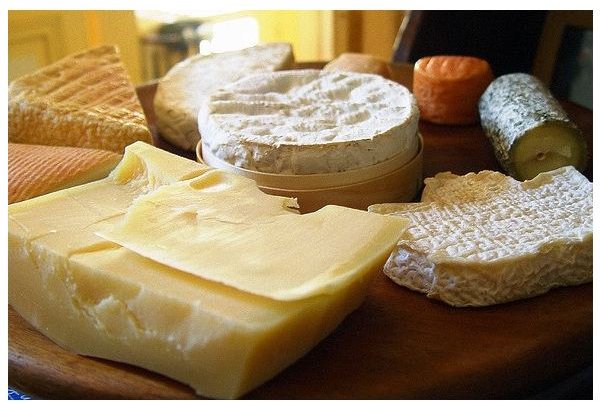Learn About the Healthiest Cheese to Eat
The Healthy Side of Cheese
The healthiest cheese? Does such a food exist? Cheese is probably the one ingredient that can turn your blah and boring dish to flavorful and tasty. However, health-conscious people avoid it like the plague because of its fat content. True, when eaten in large amounts, it can be disastrous to your low-fat lifestyle. Would you like to find a healthy cheese, or would you rather do without the scrumptiousness of it all and its benefits?
Yes, you read it right, cheese has health benefits as well. The calcium, phosphorus and protein in cheese help protect tooth enamel and increase saliva flow in your mouth. Cheese contains sphingolipids and conjugated linoleic acid, which experts say help prevent cancer. The Vitamin B in cheese strengthens the liver, enhances blood formation and facilitates nutrient absorption. Since not all cheeses are healthy, you have to hunt for the healthiest cheese.
Types
As there are a hundred or even a thousand kinds of cheese, let us just stick to the most common, the kinds your local grocery or deli carries. This list of cheese nutrition facts is based on a 3.5 ounce serving size or 100 grams. This is about one cup of cheese in layman’s terms.

Cream cheese has 440 calories and 46 g of fat, and to make it worse, only 3g of protein. Scratch that one from the list. Cottage cheese wins by a landslide. Regular cottage cheese and its low-fat counterpart have less than 100 calories per cup. That’s why weightlifters and bodybuilders prefer this healthy cheese: not only is it low in fat (1.4 g), but it is high in calcium and protein (14g). Most pregnant women also prefer cottage cheese over other varieties, because not only is it safe for the baby and easily digested, the mild, almost bland, taste is perfect for their overly sensitive tastes.
Cottage cheese is available at your local grocery store or your local dairy farm. It is best eaten with fresh fruit, fruit puree, granola, toast and green salad. If you’re feeling generous, use it as an ingredient in all-time favorite recipes like lasagna, chicken and steak.
Alternatives
Cottage cheese may be the healthiest cheese, but there are some notable other healthy choices. Take for example the classic favorite, mozzarella – It may have 289 calories per 100 grams, but you can always cut your cheese intake in half to lessen the guilt. This nutrition fact is based on one cup of shredded cheese; there is definitely room for you to cut back.
Like in any diet, awareness is the key, along with limiting food intake and sticking to your diet plan. If you enjoy cheese, eat it in moderation. Sprinkling a small amount of flavorful cheese on a salad goes a long way.
Disclaimer
This is not a medical advice and not meant to treat, diagnose, prescribe or cure any ailment. Check with your physician first before following any advice you have read on BrightHub.com. Consult your doctor before you start, stop or change anything that has been previously prescribed to you.
Resource
U.S. Department of Agriculture: Nutrient Database for Standard Reference
cwbuecheler - https://farm2.static.flickr.com/1100/1452518357_eb51a3078a_z.jpg
